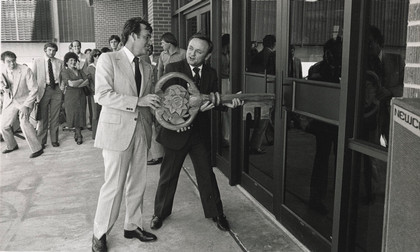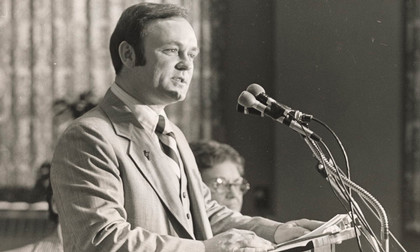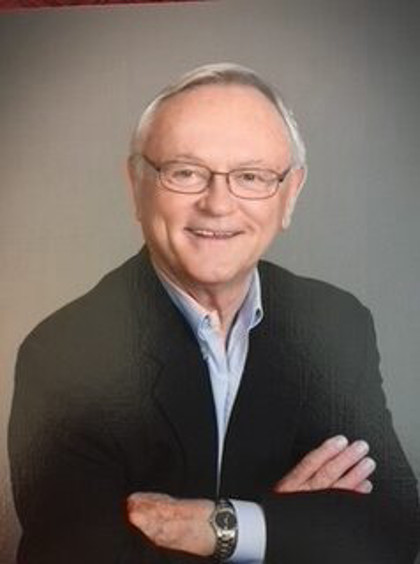It was during his tenure that Kansas State College of Pittsburg was made a university and the official name was changed to Pittsburg State University.
With its more prominent status came an expanded vision. The new $3.6 million library, Leonard H. Axe Library, opened in August 1979, replacing the outdated Porter Library which had served campus since 1927.

Appleberry drove enrollment growth, established the university's role as the state’s technology transfer center, and fostered programs for students from the five surrounding community colleges to transfer to the university for a four-year degree.
During this time, he was selected by the U.S. Secretary of Education to serve as vice chair of the National Center for Educational Statistics.
He also was a supporter of the arts and maintained a steady correspondence of letters to noted University Artist in Residence Eva Jessye that are now archived in University Special Collections.

In his inaugural address on April 13, 1977, he spoke of the value of a higher education:
"Education teaches us to appreciate the creativity in a book, a play, a work of art, a musical composition. It has enabled us to make major breakthroughs in medicine and technology and to understand the forces and counter forces which shape our world. And, it has taught us to know ourselves and our neighbors better and through a deeper understanding of our human heritage,” he said.
Appleberry started his career as a public school music teacher and then principal in Missouri, then entered higher education at Oklahoma State University. He served as director of Strategic Planning and assistant to the chancellor at the University of Kansas where he was actively involved with KU Medical Center. He served as president of Northern Michigan University where he formed the Northern Economic Initiatives Center, helped establish the first U.S. Olympic Education Center, and helped create the Glen Seaborg Center for Science and Mathematics.
He led the American Association of State Colleges and Universities that works with the U.S. President and Congress to develop higher education policy.

In retirement, Appleberry joined a national consulting firm helping recruit academic leaders for colleges and universities and was active in numerous civic organizations in Louisville, Kentucky.
He was preceded in death by a son and his wife of nearly 50 years, former Pittsburg State “First Lady” Patricia Ann (Trent) Appleberry. He is survived by a son, daughter-in-law, and five grandchildren. A service to celebrate his life will be held in Louisville on Oct. 26.